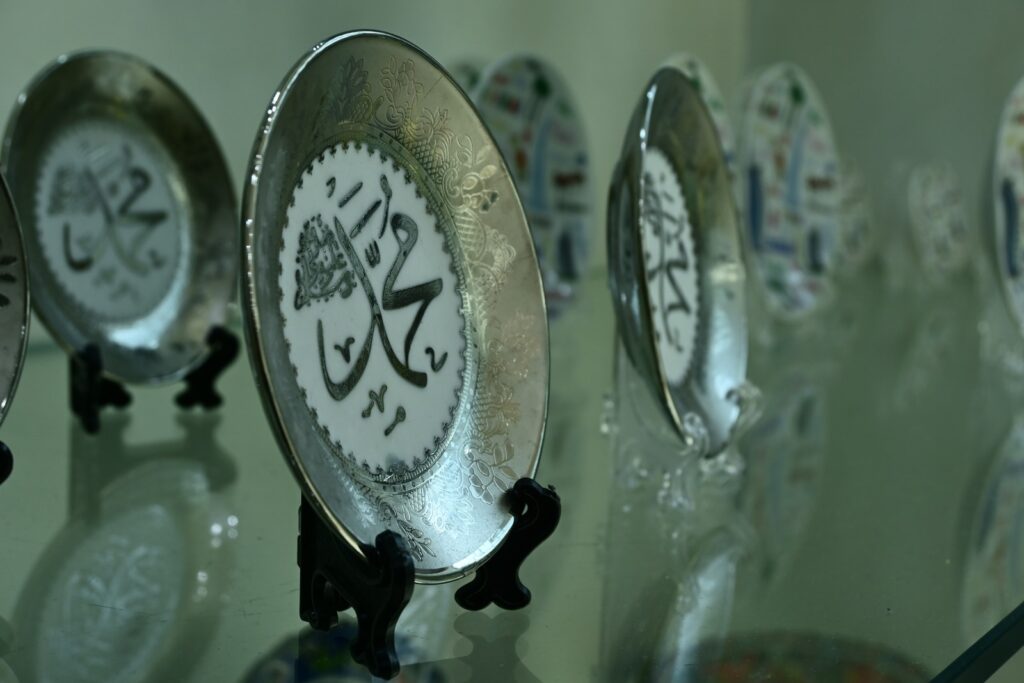Introduction
The death of the Prophet (salalahu alaihi wa sallam) was the greatest calamity that this ummah ever faced. In this article we examine the final months of the blessed Prophet’s life.
The army of Usaamah
In the tenth year after hijra, after returning from his Hajj in the month of Dhil-Hijjah, the Messenger of Allah (salalahu alaihi wa sallam) remained in Al-Madeenah for the rest of the month and for the months of Al-Muharram and Safar. He quickly began to mobilize a huge army to fight the Byzantines, appointing Usaamah ibn Zaid ibn Haarithah to be its leader. Usaamah was commanded to lead his army to the lands of Al-Balqaa and Palestine.
Many prominent Companions from both the Muhaajiroon and the Ansaar were a part of Usaamah’ s army. Some people in the army took issue with the Prophet’s appointment of Usaamah as their leader; at the time, Usaamah was only eighteen years old. They were unhappy that such a young and inexperienced person — not to mention the fact that he was the son of a freed slave, which was still an issue for some who had only recently embraced Islam — was leading them, when more prominent members of the Muhaajiroon and Ansaar would be common troops under his command.
The Prophet did not accept their arguments, explaining to them that their complaints were unfounded. He said, “If they call into question his leadership, then they had previously called into question the leadership of his father: And by Allah, he was most worthy and deserving of assuming his role as leader; and he was among the most beloved of people to me. And verily, with him gone (for Zaid died in the Battle of Mo’tah), his son is now among the most beloved of people to me.’ As the members of Usaamah’s army were preparing for the upcoming expedition, the Prophet became sick with an ailment that was to be his last in this world.
Important events prior to the Prophet’s death
From the time the Prophet fell ill until the time he died; a number of events occurred. For instance, the Prophet visited the graves of Uhud’s martyrs and prayed over them; he decreed that all polytheists should be expelled from the Arabian Peninsula, at the same time making it clear that their delegations could still come for a visit; and he forbade Muslims from turning graves into Masjids. When his condition worsened, he asked to be taken care of in ‘Aaishah’s house. In the speeches he gave during his final days, he advised people to have good thoughts about Allah; to perform prayer properly, consistently, and on time; and to treat the people of the Ansaar with the respect they deserved. He also advised the Muslims to take good care of the Ans̩ār.
Abu Sa’eed Al-Khudree gave an account of a sermon that the Prophet delivered during the illness that ended with his death. In that sermon, the Prophet said, Verily, Allah gave a servant of His, a choice between this world, and what He has with him (in terms of rewards), and that servant chose what is with Allah.’ When the Prophet said that the servant chose what is with Allah, Abu Bakr began to cry. And everyone around him couldn’t understand why he had suddenly become so sad. Abu Sa’eed later mused, “The Messenger of Allah was the one who was being given the choice, and Abu Bakr was the most knowledgeable person among us.”
Abu Bakr ordered to lead the prayer
On one of the days of his final illness, the Prophet became so sick that, when it was time for prayer, and when Bilaal made the call to prayer, the Prophet said, “Order Abu Bakr to lead the prayer.” ‘Āisha said, “Verily, Abu Bakr is a soft-hearted person who weeps a lot. So if he stands in your place, he will not be able to lead the people in prayer.” The Prophet repeated the command, and they repeated the same answer; and then for a third time, the Prophet repeated the command, and they still gave him the same response. The Prophet said to them, “Verily, you are like the female companions of Yusuf! Order Abu Bakr to lead the people in prayer.“
Ibn Abbas said: The Prophet (salalahu alaihi wa sallam) went out in his fatal illness with his head wrapped with a piece cloth, he sat on the Pulpit and praised Allah and thanked him, then said: “There is no one who had done more favor to me with life and property than Abu Bakr bin abi Quhafah. If I were to take a Khalil (beloved intimate friend), I would certainly have taken Abu Bakr but the Islamic brotherhood is superior. Close every opening in this mosque except that of Abu Bakr.” [Sahih ibn Hibban – isnad sahih].
After Abu Bakr went out to lead the prayer, the Prophet regained a feeling of liveliness, and so he went out to attend the congregational prayer; and walked to the prayer with the help of two men, one to his right and the other to his left. The narrator of this story said, “It was as if I saw his legs dragging along on the ground as a result of the extreme weakness he was feeling.” Abu Bakr wanted to step back, so that the Prophet could lead the people in prayer; but the Prophet signalled to him that he should remain where he was. The Prophet was still being helped along until he sat down beside Abu Bakr. Al-‘Amash, one of the narrators of this story, was asked, “So the Prophet was praying, Abu Bakr was following his prayer, and the people were following the prayer of Abu Bakr?” Al-‘Amash nodded his head, indicating that, yes: that is exactly how it happened.
Abu Bakr continued to lead the people in prayer until Monday, when the Prophet removed the screen of his apartment just as the Muslims were busy lining up for prayer and looked at them. And what he saw pleased him a great deal, for he was looking at people who devotedly performed congregational prayer. The Prophet’s heart was content, for he achieved with his people that which no other Prophet had achieved before him.
The Companions saw that the Prophet was smiling and laughing. Out of love for the Prophet some people mistook that as a sign of his recovery. They thought that he was coming out to lead them in prayer, but he signaled to them that they should complete their prayer. He then entered the apartment and lowered the screen. After the prayer was completed, some Companions returned to their daily work and responsibilities. As for Abu Bakr, he said to ‘Aaishah, “I feel for certain that the Messenger of Allah’s sickness has now gone.” Inspired by love for the Prophet, Abu Bakr spoke these words, but he was of course mistaken. The Prophet was fatally ill and would not live to see another prayer.
The Prophet’s final moments
The intensity with which the Prophet felt the pangs of death was severe. As the Prophet was experiencing some of that pain, Usaamah ibn Zaid entered upon him. Not able to talk, the Prophet began to raise his hands towards the sky and then placed them on Usaamah who understood that the Prophet was supplicating for him.
When the pangs of death started, ‘A’ishah leant him against her. She used to say: One of Allah’s bounties upon me is that the Messenger of Allah died in my house, and on my day, while I am still alive. He died between my chest and neck while he was leaning against me. Allah has mixed his saliva with mine at his death. For ‘Abdur-Rahman – the son of Abu Bakr – came in with a siwak in his hand, while I was leaning the Messenger of Allah against me. I noticed that he was looking at the siwak, so I asked him – for I knew that he wanted it — “Would you like me to take it for you?” He nodded in agreement. I took it and gave it to him. As it was too hard for him, I asked him “Shall I soften it for you?” He nodded in agreement. So I softened it with my saliva and he passed it (on his teeth). There was a water container available at his hand with some water in. He put his hand in it and wiped his face with it and said: “There is no true god but Allah. Death is full of agonies.” [Bukhari]
As soon as he had finished his Siwak brushing, he raised his hand or finger up, looked upwards to the ceiling and moved his lips. So ‘A’ishah heard him say three times: “The Rafeeq al-Aala (The Highest Companions).” This event took place at high morning time on Monday, the 12th of Rabi’ al-Awwal, in the eleventh year of hijrah. He was sixty-three years and four days old when he died. The day of his death was the darkest and saddest day that the Muslims had ever witnessed, just as the day of his arrival in Medina was the happiest day they experienced.
Following the death of the Prophet (salalahu alaihi wa sallam), Anas b. Malik said, “On the day the Messenger of Allah arrived in Al-Madeenah, all things in it became illuminated. And on the day he died, all things in it became dark.
Summarised from Abu Bakr as-Siddeeq: His Life and Times. by Ali M. Sallabi.

